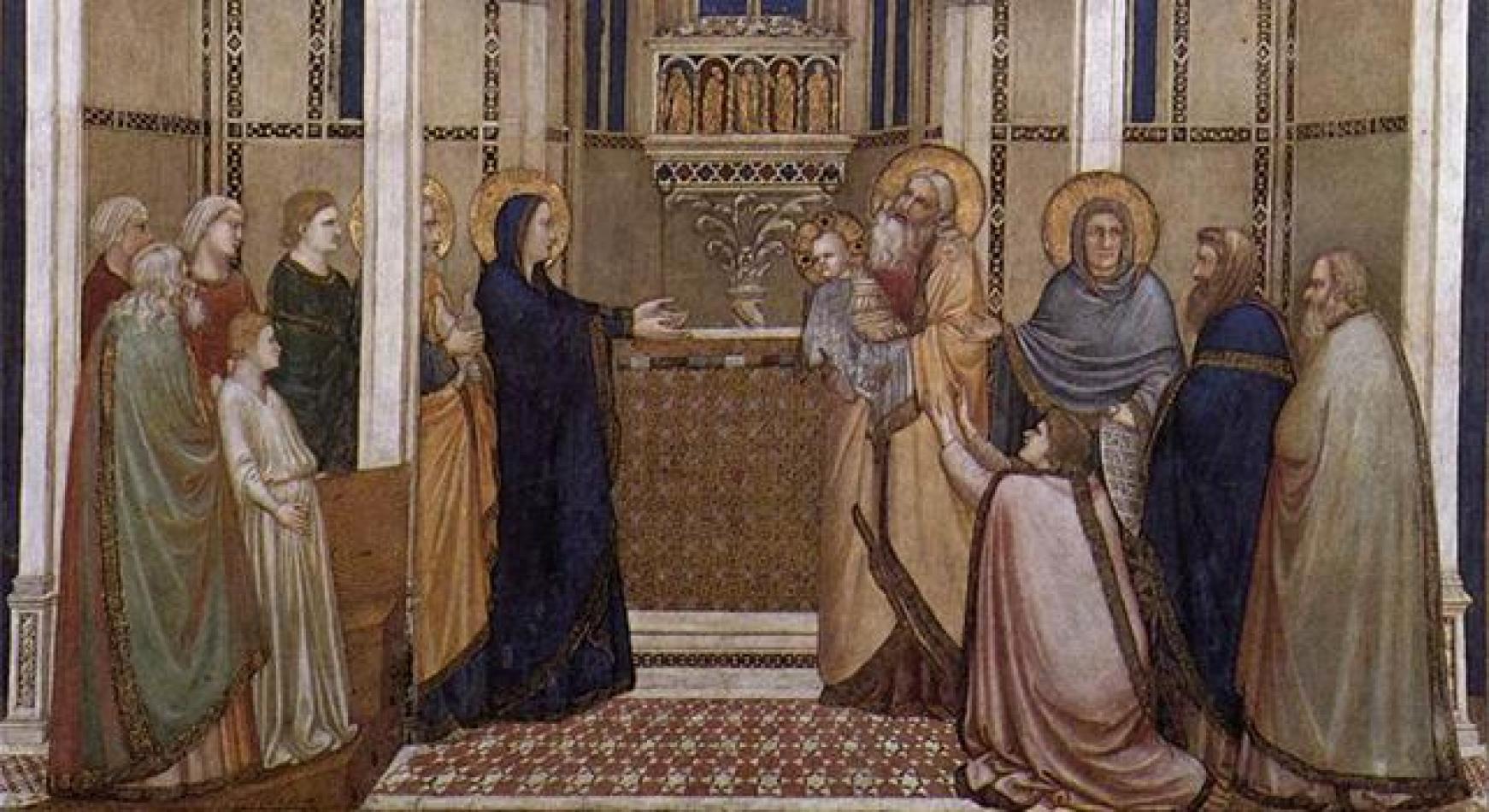Daniel Comboni
Comboni Missionaries
Institutional area
Other links
Newsletter
A hasty reading of today’s Gospel can give the impression of finding ourselves facing a series of unrelated sentences and the problems of our lives. The passage, however, is not at all confusing or abstract; it is only very dense. Let’s put it in simple terms. Let us first clarify the sentence of v. 25: “I told you all this while I was still with you.” [...]
The Spirit always draws new things from the Gospel
Gospel reflection – John 14:23-29
A hasty reading of today’s Gospel can give the impression of finding ourselves facing a series of unrelated sentences and the problems of our lives. The passage, however, is not at all confusing or abstract; it is only very dense. Let’s put it in simple terms. Let us first clarify the sentence of v. 25: “I told you all this while I was still with you.” We are at the Last Supper and is at least surprising to hear Jesus say: While I was still with you. It is clear that here it is not the historical Jesus who is speaking, but the Risen Lord that turns to the Christian communities of the time of John, subjected to the test by persecution, troubled by defections, infidelity, incipient heresies and, above all, disappointed by the failure, the expected return of the Lord. Framed within this perspective we now pass to an examination of the passage.
The initial statement: “If anyone loves me …” should be seen in context. One of his disciples—Judas (not Judas Iscariot)—addressed a question to Jesus: “Lord, how come you have to show yourself to us and not to the world?” (v.22).
In Israel, everyone expected a Messiah who, performing spectacular miracles, amazed the whole world. Faced with the humble and resigned attitude with which Jesus has always presented himself—he did not cry, did not make his voice heard in the streets (Mt 12:19), nor want his miracles disclosed—the apostles often posed the question that was formulated by Judas, on behalf of all, at the last Supper.
Even the relatives of Jesus who lived in Nazareth have never understood his absurd pursuit of concealment. One day they told him: “Don’t stay here; go instead to Judea and let your disciples see the works you are doing. Anyone who wants to be known doesn’t work secretly. Since you are able to do these things, show yourself to the world” (Jn 7:3-4).
The Christians of the communities of Asia Minor, at the end of the first century, do not understand the reason why the Lord does not come back on the clouds of heaven to manifest resoundingly who he is and what he is capable of doing.
To these doubts and uncertainties, Jesus answers: “Whoever loves me will keep my word, and my Father will love him and we will come to him and make our home with him” (vv. 23-24). Jesus wants to manifest, together with the Father, not through miracles, but by coming to dwell in the disciples.
We must be careful not to materialize this statement. To understand it, it is necessary to refer to another phrase uttered by Jesus at the Last Supper. Responding to Philip he says: “The Father who dwells in me is doing his own work. Believe me when I say that I am in the Father and the Father is in me; at least believe it on the evidence of these works that I do” (Jn 14:10-11).
Jesus brings as proof of his unity with the Father the works he does. He does not refer to miracles, as perhaps we tend to think. He does not appeal to miracles to prove to be “one” with the Father; he refers to everything he does.
His gestures are always and only works of love; they tend to liberate man from all slavery to which he is subjected: those of sin, disease, superstition, religious and social discrimination. But this work of liberation is the same that, according to the Old Testament, the Lord has done on behalf of his people. Israel knew his God as the protector of the last, the weak, the foreigners, orphans, and widows. If Jesus performs these same actions it means that God is in him and he in God.
What does it mean then that Jesus and the Father dwell in us? It means that, after listening to the word of the Gospel, we receive the life of God, His Spirit and we are led to do the same works of Jesus and the Father, we becoming in turn liberators of people. For this, it is not difficult to recognize if and when Jesus and the Father are present and operating in a person.
In the next verse, Jesus promises the Holy Spirit, “the Helper … will teach you all things, and remind you of all that I have told you” (v. 26).
There are two functions of the Spirit. Let’s start with the first, to teach.
Jesus said it all; he did not leave out anything. Yet there is the need that the Spirit continues to teach. Jesus was not able to explain all the consequences and the practical applications of his message. In the history of the church—he knew it—ever new situations would arise; complex questions would come up. Consider, for example, how many real problems now wait for a light of the Gospel (bioethics, interreligious dialogue, difficult moral choices … ).
Jesus assures that his disciples will always find an answer to their questions, an answer according to his teaching if they know how to listen to his word and keep themselves in harmony with the promptings of the Spirit present in them. They must have a lot of courage to follow his instructions because, often, he will ask for changes of routes so much unexpected as radicals. But the Spirit will not teach anything other than the gospel of Jesus.
In the light of other passages of Scripture, this verb to teach acquires a deeper sense. The Spirit does not instruct as a professor at school does when he explains the lesson. The Spirit teaches in a dynamic way, becomes an inner impulse, irresistibly induces in the right direction, stimulates the good, leads to making choices consistent with the Gospel. “He will guide you into the whole truth”—explains Jesus at the Last Supper (Jn 16:13)—and, in his first letter, John explains this: “You received from him an anointing, and it remains in you so you do not need someone to teach you. His anointing teaches you all things; it speaks the truth and does not lie to you, so remain in him and keep what he has taught you” (1 Jn 2:27-28).
The second task of the Spirit is to remember. There are many words of Jesus that, despite being in the Gospels, run the risk of being forgotten or unmentioned. It happens, especially with those evangelical proposals that are not easy to assimilate because they are contrary to the “common sense” of the world.
An example: until a few years ago, many Christians still distinguished between just and unjust wars, and even spoke of “holy wars,” approved of the use of arms to defend their rights, supported the legitimacy of the death penalty for criminals. Today, fortunately, those who think this way are less and less.
How is it that the disciples of Christ should have forgotten for so long the clear words of the Master prohibiting all forms of violence against the brother and sister? Yet it happened. Here then is the Spirit intervening to remember, to remind the disciples of what Jesus said: “Love your enemies, do good to those who hate you … To the one who strikes you on the cheek …” (Lk 6:27-29). For many centuries Christians have been able to plug their ears to the calls of the Spirit, but today those who try to justify the use of violence find themselves always alone and more pressed by the voice of the Spirit who…reminds him of the Master’s words.
I insisted on non-violence, but the examples of “forgetfulness” of the words of Jesus could be multiplied and would be appropriate that, in the light of the Spirit, each one would try to make an exercise of memory.
Jesus bequeathed to his disciples the commandment of love; now he also leaves his peace: “Peace be with you, I give you my peace; not as the world gives peace do I give it to you” (v.27). Jesus utters these words when the Roman Empire is at peace, there are no wars, and all people are subject to Rome. Yet this is not the peace that he promises. This is the peace of the world, based on the strength of the legions, not justice. It is peace that approves slavery, marginalization, oppression of the vanquished, and the arrogance of the powerful. The peace promised by Jesus is brought about when among people new relationships are established, when the will to compete, to dominate, to be the first gives way to service, selfless love for the last ones. Christian communities are called to be the place where everyone can see the beginning of this peace.
The last part of the passage (vv. 28-29) is rather enigmatic: it is not easy to see why the disciples should rejoice at the departure of Jesus and why he claims that the Father is greater than he. We begin to explain the joy. We note first of all that it can only be proven by those who “love” Jesus. “If you loved me” it means: if you were in tune with my feelings, if you shared my thoughts and my projects, you would rejoice because I am going to carry out the mission that Father has entrusted to me. The Master’s death scares the disciples because they have not been enlightened by the Spirit; they do not realize that his gesture of infinite love will begin the new world, characterized by “his peace.”
The statement about the inferiority of Jesus to the Father is explained by the language used by the rabbis. They spoke of superiority and inferiority to distinguish the envoy from the sender. As long as he is in the world and he has not carried out his mission, as long as he does not return to the Father, Jesus is “the inferior,” that is, the one sent by the Father.





